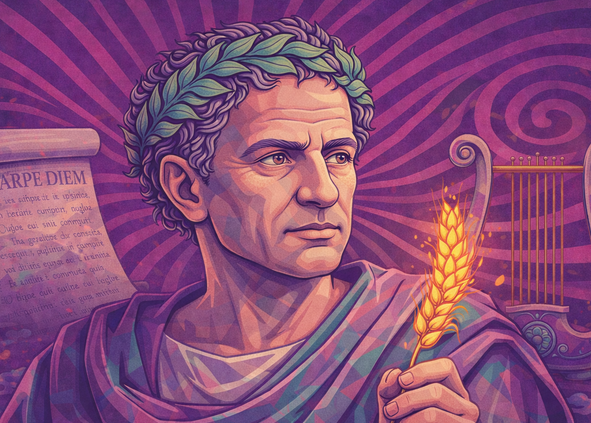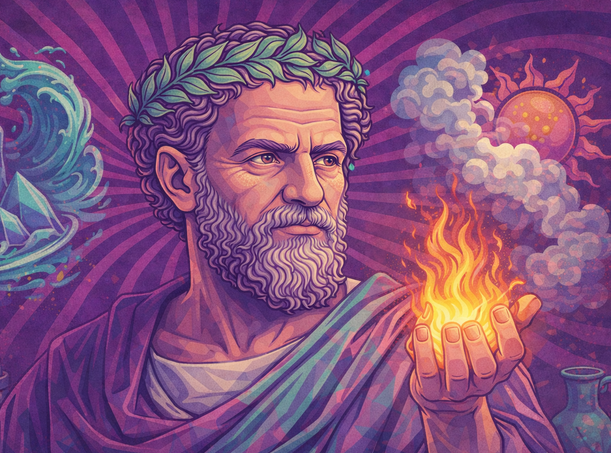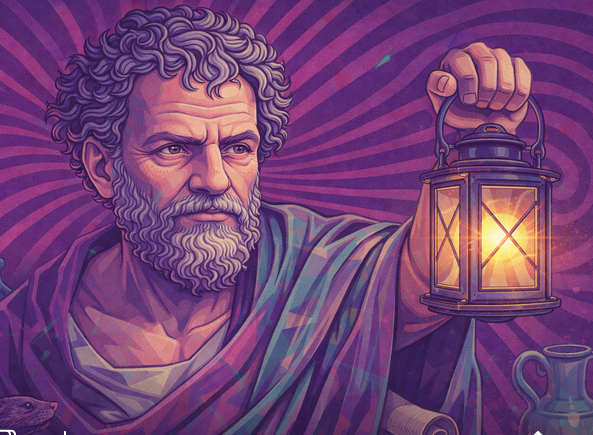
The covetous man is ever in want.
We rarely find anyone who can say he has lived a happy life, and who, content with his life, can retire from the world like a satisfied guest.
In adversity, remember to keep an even mind.
At times the world sees straight, but many times the world goes astray.
I am not bound over to swear allegiance to any master; where the storm drives me I turn in for shelter.
Mediocrity in poets has never been tolerated by either men, or gods, or booksellers.
Tomorrow we will be back on the vast ocean.
O Fortune, cruellest of heavenly powers, why make such game of this poor life of ours?
For joys fall not to the rich alone, nor has he lived ill, who from birth to death has passed unknown.
Force without wisdom falls of its own weight.
The mountains will be in labor, and a ridiculous mouse will be brought forth.
Anger is a momentary madness so control your passion or it will control you.
Tis not sufficient to combine well-chosen words in a well-ordered line.
Whoever cultivates the golden mean avoids both the poverty of a hovel and the envy of a palace.
Conquered Greece took captive her savage conqueror and brought her arts into rustic Latium.
To flee vice is the beginning of virtue, and to have got rid of folly is the beginning of wisdom.
What is to prevent one from telling truth as he laughs, even as teachers sometimes give cookies to children to coax them into learning their A B C?
A host is like a general: calamities often reveal his genius.
He who feared that he would not succeed sat still.
Fortunate is he who has acquired a wealth of divine understanding, but wretched the one whose interest lies in shadowy conjectures about divinities.
Nothing of the All is either empty or superfluous.
A law there is, an oracle of Doom, Of old enacted by the assembled gods, That if a Daemon-such as live for ages- Defile himself with foul and sinful murder, He must for seasons thrice ten thousand roam Far from the Blest; such is the path I tread, I too a wanderer and exile from heaven.
As it has long been and shall be, not ever, I think, will unfathomable time be emptied of either. This quote refers to Love and Strife, the fundamental opposing and ordering forces in Empedocles' model of the cosmos.
For already, sometime, I have been a boy and a girl, a shrub, a bird, and a silent fish in the sea.
What needs saying is worth saying twice.
Hear first the four roots of all things: shining Zeus, life-bringing Hera, Aidoneus, and Nestis, who wets with tears the mortal wellspring.
From such honor and such a height of fortune am I, thus fallen to earth, cast down amongst mortals.
With deep roots Ether plunged into earth.
And I will tell you something else: there is no birth of all mortal things, nor any end in wretched death, but only a mixing and dissolution of mixtures; 'birth' is so called on the part of mankind.
But what is lawful for all extends across wide-ruling aether and, without cease, through endless sunshine.
But, when the elements have been mingled in the fashion of a man and come to the light of day, or in the fashion of the race of wild beasts or plants or birds, then men say that these come into being; and when they are separated, they call that woeful death. They call it not aright; but I too follow the custom, and call it so myself.
The sight of both eyes becomes one.
Fools -- for their thoughts are not well-considered who suppose that not-being exists or that anything dies and is wholly annihilated.
To one who asked what was the proper time for lunch, he said, "If a rich man, when you will; if a poor man, when you can." Diogenes Laërtius, vi. 40
When the slave auctioneer asked in what he was proficient, he replied, "In ruling people."
Being asked where in Greece he saw good men, he replied, "Good men nowhere, but good boys at Sparta."
He once begged alms of a statue, and, when asked why he did so, replied, "To get practice in being refused."
Self-taught poverty is a help toward philosophy, for the things which philosophy attempts to teach by reasoning, poverty forces us to practice.
He lit a lamp in broad daylight and said, as he went about, "I am looking for a human."
It is not that I am mad, it is only that my head is different from yours.
When some one boasted that at the Pythian games he had vanquished men, Diogenes replied, "Nay, I defeat men, you defeat slaves."
To the question what wine he found pleasant to drink, he replied, "That for which other people pay."
Poverty is a virtue which one can teach oneself.
He was seized and dragged off to King Philip, and being asked who he was, replied, "A spy upon your insatiable greed."
When people laughed at him because he walked backward beneath the portico, he said to them: "Aren't you ashamed, you who walk backward along the whole path of existence, and blame me for walking backward along the path of the promenade?"
To Xeniades, who had purchased Diogenes at the slave market, he said, "Come, see that you obey orders."
When asked why people give to beggars but not to philosophers, he replied, 'Because they expect they may become lame and blind, but never that they will become philosophers.'
Perdiccas threatened to put him to death unless he came to him, "That's nothing wonderful," Diogenes said, "for a beetle or a tarantula would do the same."
Other dogs bite only their enemies, whereas I bite also my friends in order to save them.
CivilSimian.com created by AxiomaticPanic, CivilSimian, Kalokagathia


